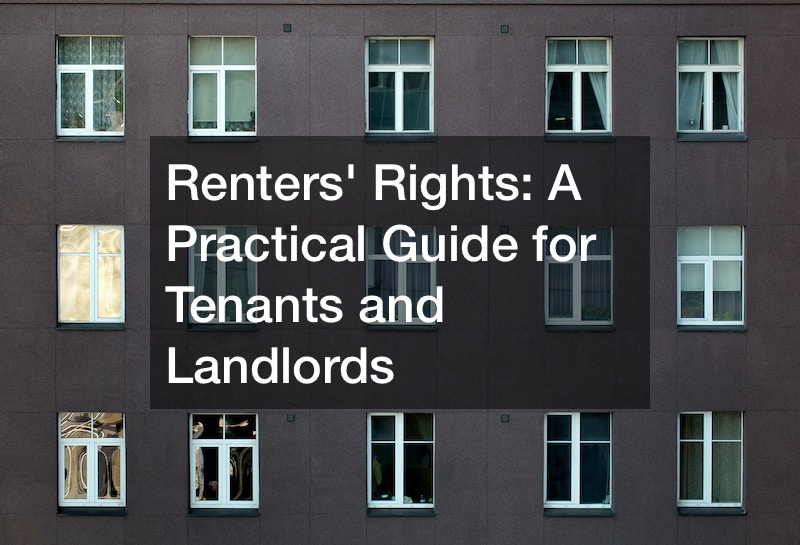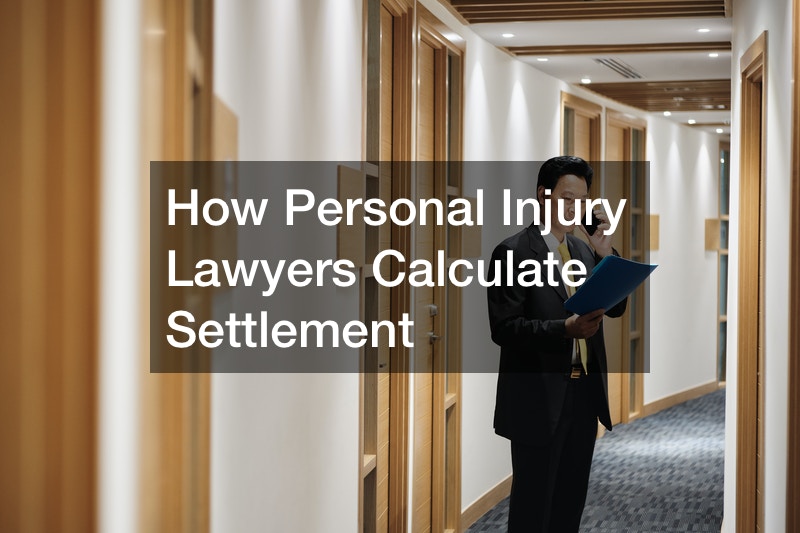Renting a property is incredibly convenient, providing flexibility and a place to call home without the long-term commitment of ownership. For landlords, it’s a source of consistent income. But even so, it’s no secret that not all landlords are created equal, and not all tenants are model residents.
The key to a successful renting experience lies in understanding and respecting the renter’s rights and responsibilities.
So, what are renters’ rights? Here’s a practical guide for tenants and landlords covering some of these rights. Whether you’re a tenant looking for guidance or a landlord seeking to provide a safe and comfortable living space, familiarizing yourself with these rights will ensure a pleasant renting experience.
Property Security
Fair housing laws require landlords to provide habitable property for their tenants. Part of this requirement includes the expectation that landlords will provide renters with a safe and secure living environment.
Landlords can fulfill this responsibility by ensuring the presence of secure locks on all entry points, including doors and windows. This helps prevent unauthorized access and protects the renter from potential intruders. To achieve this, landlords should enlist the services of reputable lock services providers to assess the property’s security needs and recommend the most appropriate locking mechanisms for the highest level of protection.
These professionals can also offer regular maintenance services to ensure the locks are in optimal working condition.
Installing proper lighting in and around the rental property also helps create a secure tenant environment. Well-lit pathways, entry points, and parking areas deter potential criminals and offer tenants a sense of security during the darker hours. Motion sensor lighting can be particularly useful as it illuminates areas as needed, conserving energy while maintaining safety.
Landlords should also consider deploying surveillance systems at strategic locations to serve as a deterrent and a potential source of evidence in case of any security incidents. Modern surveillance systems offer advanced features such as motion detection and remote monitoring, allowing landlords to stay vigilant and ensure the rental property’s security.
Remember, property security is not just a renter’s right but a fundamental aspect of ensuring a comfortable and protected living environment for landlords and tenants.
Adequate Shelter

Landlords are required by law to ensure their tenants have adequate shelter. It’s part of a renter’s right to habitable property. Landlords can ensure adequate shelter by providing proper roofing since the roof is the first line of defense against the elements. While installing roofing, landlords need to prioritize high-quality roofing materials that can withstand the local climate and provide optimal protection. In addition to proper roofing, property owners can provide adequate shelter for their renters by:
- Investing in insulation and energy efficiency: Proper insulation helps regulate indoor temperatures, reduces energy consumption, and creates a comfortable living environment for tenants
- Providing regular maintenance and repairs: Landlords should conduct regular maintenance inspections to identify and address any issues promptly. This includes addressing leaks, cracks, or structural damage that may compromise the property’s integrity.
Waste Service
Waste services are essential to a landlord’s responsibility in meeting the renter’s right to a habitable property. Proper waste management not only contributes to a clean and healthy living environment but also ensures compliance with local regulations. Landlords can provide a small dumpster on the property to facilitate efficient waste disposal for their tenants.
It’ll allow the renters to easily dispose of their household waste, including regular trash, recyclables, and other permitted materials, without frequent trips to external waste facilities. A small dumpster will also prevent the accumulation of garbage in common areas or individual units, promoting cleanliness and hygiene and minimizing the risk of pests, odors, and potential health hazards.
Besides providing a dumpster, a landlord should arrange regular waste collection services to ensure proper waste disposal. Timely waste removal prevents overflowing bins and potential health hazards.
Additionally, landlords can facilitate proper waste management and encourage sustainability by implementing recycling programs. For instance, providing recycling bins or designated areas for different types of recyclables, such as paper, plastic, glass, and metal, will create a habitable environment for the renters and promote eco-consciousness within the property.
Clean Drinking Water

Clean drinking water is a fundamental renter’s right, just as adequate shelter and other rights listed in this practical guide for tenants and landlords. One effective way landlords can meet this right is by investing in water treatment services.
Water treatment service employs various processes designed to remove impurities and contaminants from the water supply, ensuring its cleanliness and safety for consumption. By implementing water treatment systems, landlords can effectively address concerns related to water quality, such as high levels of minerals, chemicals, or potential contaminants.
Landlords can also provide filtered water options within the rental property. Installing water filtration systems or providing filtered water dispensers can offer tenants an additional layer of assurance, allowing them to access clean and purified water easily. This is particularly beneficial in areas with known water quality concerns.
Septic Infrastructure
Landlords are legally required to provide safe and efficient wastewater disposal from rental units. They should schedule regular septic tank inspections to identify and prevent potential issues. A professional septic service provider should do these inspections to allow timely repairs and prevent extensive issues that may disrupt a renter’s right to a comfortable and habitable environment.
Property owners according to practical guides for tenants and landlords should also schedule routine pumping to maintain the optimal functioning of the tank and prevent back-ups or overflows, which would disrupt a renter’s living arrangement.
On the other hand, tenants are expected to use water efficiently to avoid overwhelming the septic system and avoid flushing diapers, excessive grease, and other non-septic-safe products down the toilet to maintain the property’s septic infrastructure.
Toxin-Free Living Space

Landlords need to provide renters with a toxin-free living space. This enables them to meet their responsibility of creating a habitable environment and promotes the health and well-being of tenants by reducing the risk of respiratory issues, allergies, and other health complications.
They can create a toxin-free living environment by installing proper ventilation systems, including exhaust fans in bathrooms and kitchens throughout all rental units.
In case of major leaks or water damage, they should enlist water damage mold removal services to dry and restore affected areas to prevent mold growth. Also, landlords can promote a toxin-free living space for tenants by adopting non-toxic cleaning practices. Instead of harsh chemical cleaners, they should opt for environmentally friendly and non-toxic cleaning products. These products are safer for tenants and the environment, reducing exposure to harmful chemicals.
Like landlords in this practical guide for tenants and landlords, tenants also have a role in maintaining the toxin-free living spaces they’ve been afforded. A renter should practice good housekeeping to prevent dirt, dust, and toxin buildup. Renters should also utilize ventilation systems to maintain proper air circulation and promptly report signs of water damage, leaks, or mold growth. These combined efforts contribute to a healthier and safer living environment for all.
Protection From the Weather
A landlord has to ensure the rental property they offer shields the tenants from the elements. One way to fulfill this duty is by implementing effective stormwater management measures. This entails keeping property drainage systems in check, ensuring gutters and downspouts work properly, and promptly addressing water infiltration issues.
Inspecting and maintaining windows, doors, and other entry points to ensure they are sealed tight is another effective way for landlords to ensure tenants are safe from the weather.
Functional Plumbing

Functional plumbing is essential to any habitable living space, and landlords must ensure that their tenants have access to it. Apart from fulfilling their responsibility in this practical guide for tenants and landlords, functional plumbing ensures tenants can carry out their daily activities smoothly. Whether taking a refreshing shower, doing laundry, or washing dishes, having reliable plumbing systems makes life more convenient and enjoyable for tenants.
Landlords should consider scheduling regular inspections and maintenance of the plumbing system to ensure tenants have functional plumbing. This includes checking for any signs of leaks, addressing clogged drains promptly, and fixing any issues with toilets, sinks, and pipes.
Additionally, educating tenants about proper usage and maintenance of plumbing fixtures can go a long way in preventing avoidable plumbing problems. It’s also a good practice for landlords to establish a system for tenants to report plumbing issues as soon as possible.
By addressing problems on time, property owners will prevent minor issues from escalating into major plumbing disasters.
Ultimately, a well-functioning plumbing system contributes to tenants’ overall satisfaction and well-being while protecting the property from potential water damage.
Safe Electricity
Electrical hazards can pose serious risks, such as fires, shocks, and electrical appliance damage. Therefore, landlords must proactively ensure safe electricity in their rental units. They should enlist electricians to routinely check the condition of the wiring, outlets, and circuit breakers. If any signs of wear, damage, or outdated electrical components are identified, it’s important to address them immediately.
Besides regular inspections, landlords can prioritize the safety of their tenants in this regard by providing proper grounding and surge protection. Grounding helps prevent electrical shocks and ensures that excess electrical energy is safely discharged. Surge protection devices, such as surge protectors or whole-house surge suppressors, can safeguard electrical appliances and prevent damage caused by power surges.
Since electrical safety is a shared responsibility, it’s paramount for landlords to educate tenants about the importance of electrical safety and encourage them to use electrical appliances responsibly, avoiding overloading outlets and using extension cords safely.
By working together, landlords and tenants can create a secure living environment and minimize the risks associated with electrical hazards.
Support for Tenants
While not mandatory, landlords have an ethical responsibility to support their tenants. Renters entrust landlords with their housing needs, and in return, they should prioritize their well-being as part of maintaining a positive landlord-tenant relationship.
Besides creating a safe and comfortable living environment for their tenants, supporting renters contributes to the overall success and reputation of a landlord’s rental business. This is because satisfied and happy tenants are more likely to stay long-term, renew their leases, and recommend the property to others. The result? Lower vacancy rates, reduced turnover costs, and a more stable rental income stream.
Moreover, when landlords prioritize the well-being of their tenants, they create a positive living experience that fosters a sense of community and belonging. This can contribute to a harmonious living environment and promote positive tenant interactions. A supportive and well-maintained property also enhances the property’s value and attractiveness, attracting quality tenants in the future. Here are several ways for landlords to support tenants:
- Implement rent relief programs: These programs provide financial assistance to eligible tenants, helping them meet their rental obligations during challenging times. By working with local government or nonprofit organizations, landlords can help alleviate financial burdens and ensure tenants can afford to stay in their homes.
- Flexible lease terms: Understanding and empathizing with tenants’ situations instills a sense of security and support. Understanding that circumstances can change, landlords should consider flexible lease terms to accommodate their tenants’ needs. This flexibility could include allowing early lease termination under specific circumstances or offering month-to-month leasing options.
- Resources and Information: Landlords can support tenants by providing information about local community services, such as healthcare facilities, schools, transportation options, and recreational activities. Sharing knowledge about nearby amenities and services can help tenants settle into the community and make their living experience more enjoyable.
Final Thoughts
Landlords have a legal and moral obligation to provide safe and secure rental properties that meet the needs of their tenants. By fulfilling these responsibilities, landlords can not only comply with fair housing laws but also foster positive tenant relationships, maintain property value, and contribute to the overall well-being of their tenants.
On the other hand, tenants have a role to play in maintaining and respecting the rental property. They should communicate openly with their landlords about any concerns or issues that arise and adhere to the terms of the lease agreement.
Whether you’re a tenant or a landlord, remember that renting is not just a transaction but a relationship built on trust, respect, and shared responsibilities. Both parties can contribute to a thriving rental community where everyone feels safe, valued, and supported by upholding the rights and fulfilling the responsibilities outlined in this practical guide for tenants and landlords.



